ESSENTIAL RECOMMENDATIONS
Contemporary economic issues in Asian countries
On December 16, 2022, UEB organized the international workshop “Contemporary Economic Issues in Asian Countries” (CEIAC 2022) to enhance scholarly and practical exchanges, providing a forum for scholars, experts, and domestic and international businesses to discuss economic development issues in Asian countries in the current period.
On December 16, 2022, UEB organized the international workshop “Contemporary Economic Issues in Asian Countries” (CEIAC 2022) to enhance scholarly and practical exchanges, providing a forum for scholars, experts, and domestic and international businesses to discuss economic development issues in Asian countries in the current period. The workshop was a collaborative effort between UEB, Springer Nature (Singapore), Sungkyunkwan University (South Korea), and Tamkang University (Taiwan).
The papers presented at the workshop analyzed the situation and challenges of economic development in Asian countries in the context of climate change and the COVID-19 pandemic. The topics of the papers included: (i) Economics and business (economic theory, income distribution domestically and internationally, macroeconomic policies, economic sectors, productivity, financial markets, business management, banking and finance...); (ii) Green economy and sustainable development: growth, development policies, public policies, sustainable growth, green growth...; and (iii) International trade and investment: international trade theory, free trade agreements, tariffs, intellectual property, international law...
The two most important topics presented and discussed in the plenary session were: (i) The process of development, establishment, and application of the Provincial Governance and Public Administration Performance Index (PAPI) in Vietnam; and (ii) The impact of the Regional Comprehensive Economic Partnership (RCEP) on the Asian-Pacific economy and its policy implications in Vietnam.
The presentation by Tran Cong Chinh clarified building, developing the index, and surveying and calculating the PAPI index in Vietnam. The PAPI index measures and compares people's experiences and perceptions of the effectiveness and quality of policy implementation and public service provision by local authorities in 63 provinces/cities in Vietnam to promote effective governance and actively respond to the needs of the people.
The papers by Prof. Patrick Ziltener (University of Zurich, Switzerland) and Prof. Nawalage S. Cooray (International University of Japan, Japan) analyzed the geopolitical and economic impacts of RCEP on the Asia-Pacific region. RCEP is considered one of the important factors that could influence the global, regional, and Vietnamese economies.
Some policy recommendations for Vietnam:
- Consistently implementing an independent, self-reliant, peaceful, friendly, cooperative, and developing foreign policy according to the Resolution of the 13th National Party Congress.
- Specific measures on foreign affairs include participating in cooperation based on national interests, determining positions based on principles, and harmonizing national interests with the common interests of the international community, depending on the subject, issue, timing, and compliance with international law and regional codes of conduct. Exploiting the strategic advantages of the country into specific cooperation programs and projects.
- Actively participating in and promoting Vietnam's role in multilateral mechanisms, especially ASEAN, the United Nations, the Asia-Pacific Economic Cooperation (APEC) forum, Mekong sub-regional cooperation, and regional and international cooperation frameworks, in digital economic governance, data, cyberspace, green standards... to ensure national interests. Taking advantage of knowledge sources from multilateral mechanisms, forums to capture global geo-economic shifts, thereby making timely and appropriate policy adjustments.
OTHERS
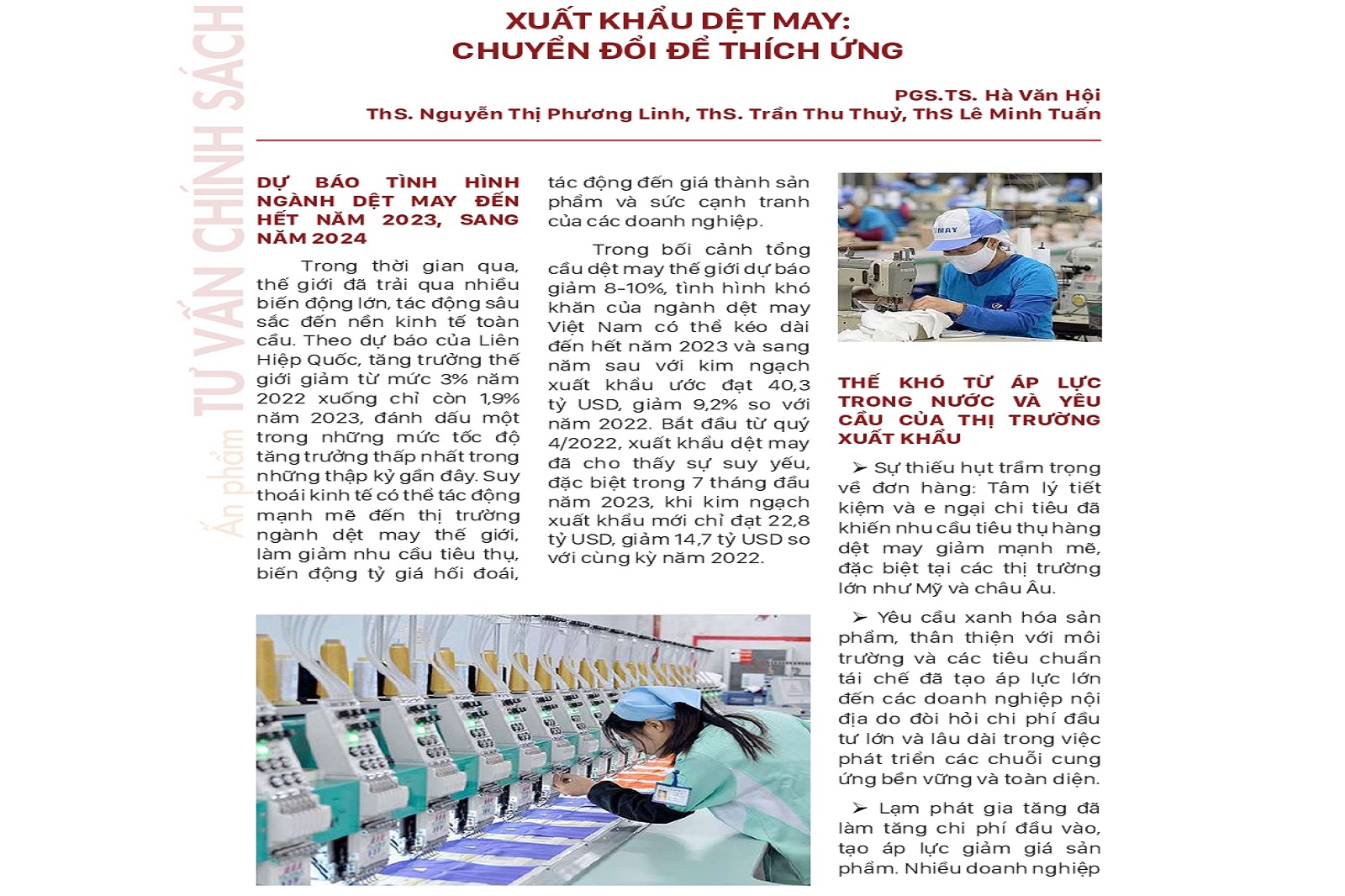
Textile and Garment Exports: Transforming to Adapt
Recently, the world has experienced significant upheavals that have profoundly impacted the global economy. According to UN forecasts, global growth is ...
More details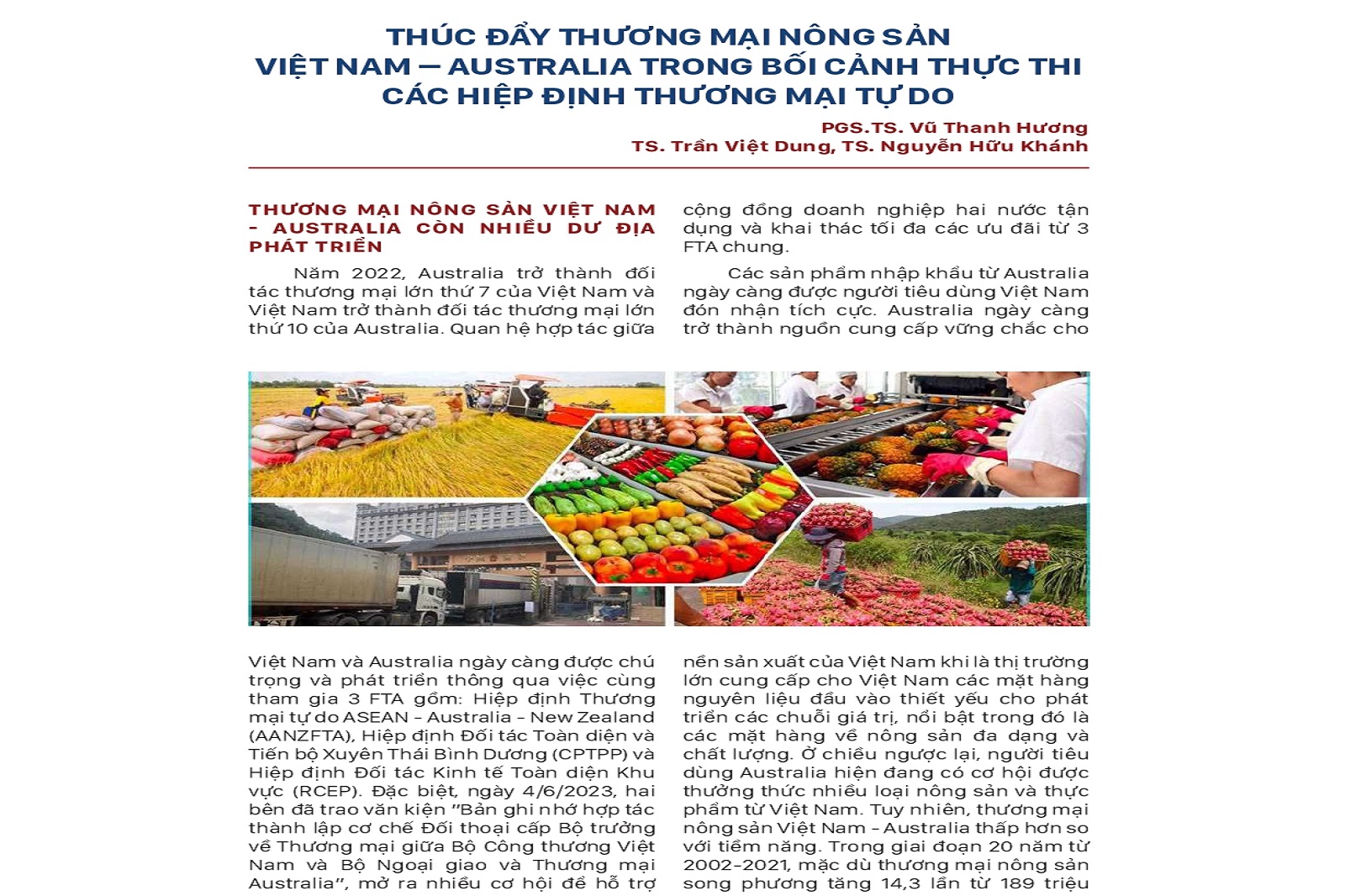
Promoting Vietnam-Australia Agricultural Trade in the Context of Implementing Free Trade Agreements
Australian imports are increasingly well-received by Vietnamese consumers. Australia is becoming a reliable supplier for Vietnam's production needs, providing ...
More details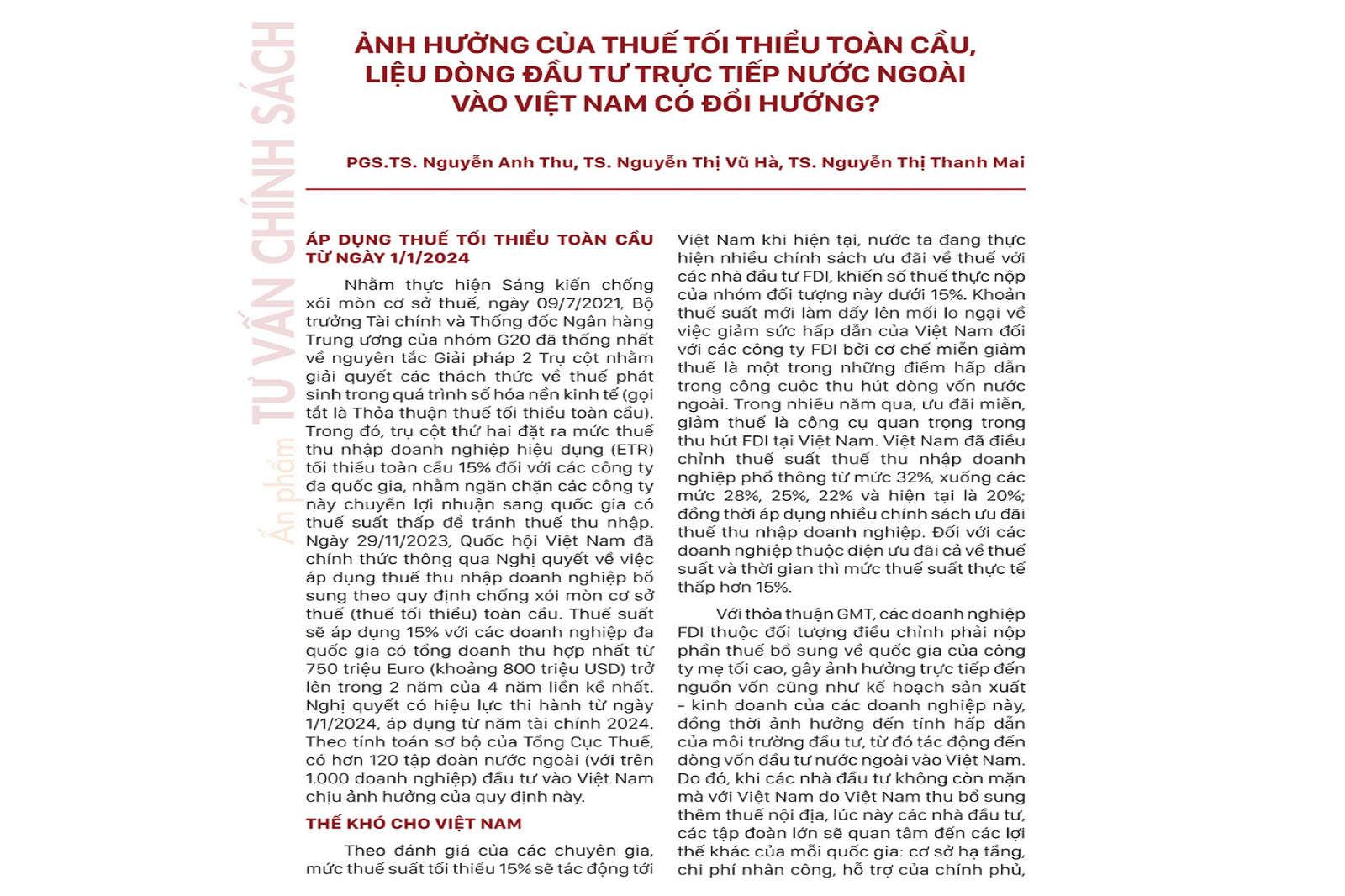
Will the Implementation of Global Minimum Tax Redirect Foreign Direct Investment into Vietnam?
To combat base erosion and profit shifting, on July 9, 2021, finance ministers and central bank governors of the G20 agreed on the principles of the Two-Pillar ...
More details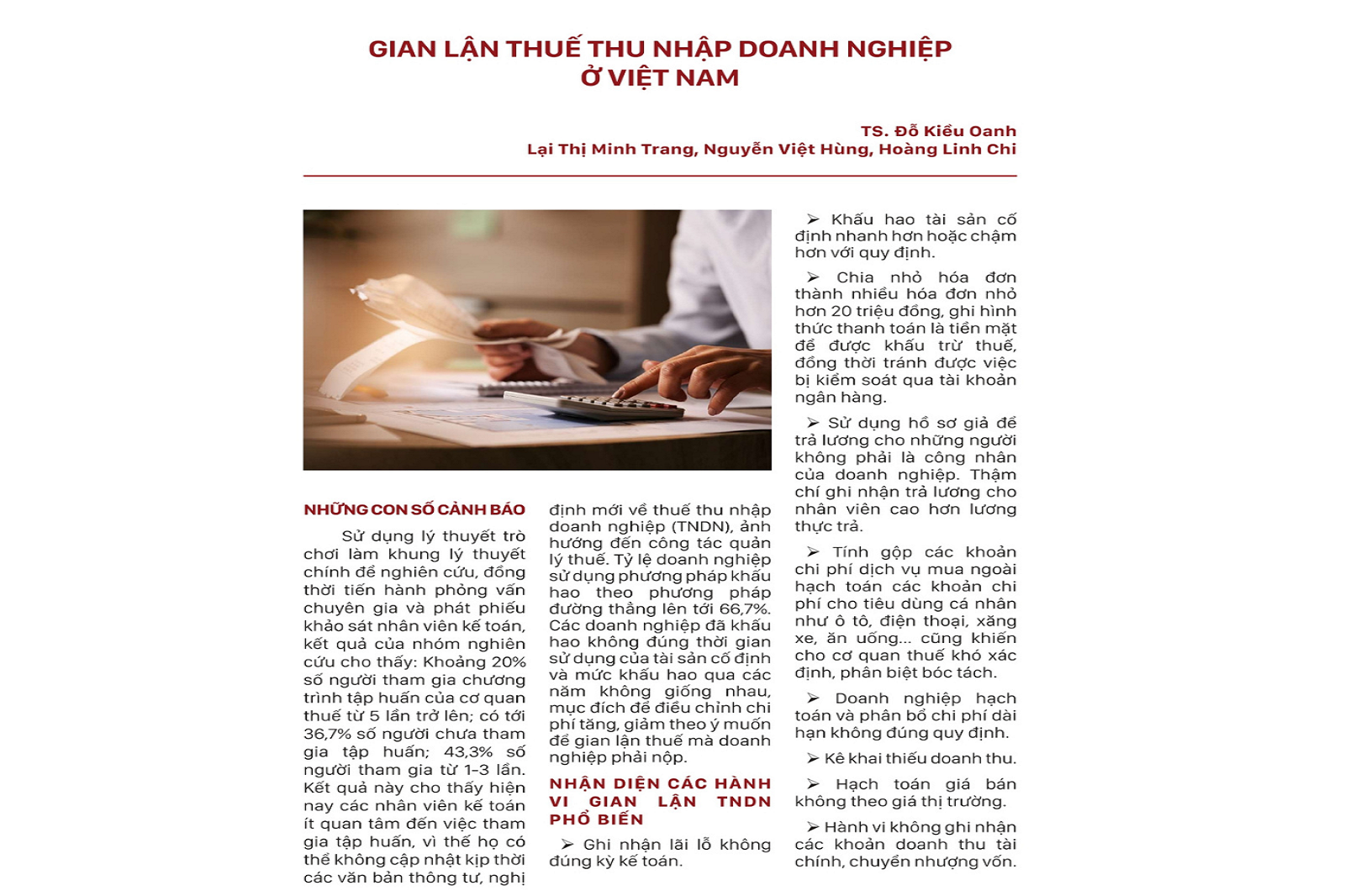
Corporate Income Tax Fraud in Vietnam
Using game theory as the main theoretical framework for the study, along with expert interviews and surveys of accountants, the research team found that ...
More details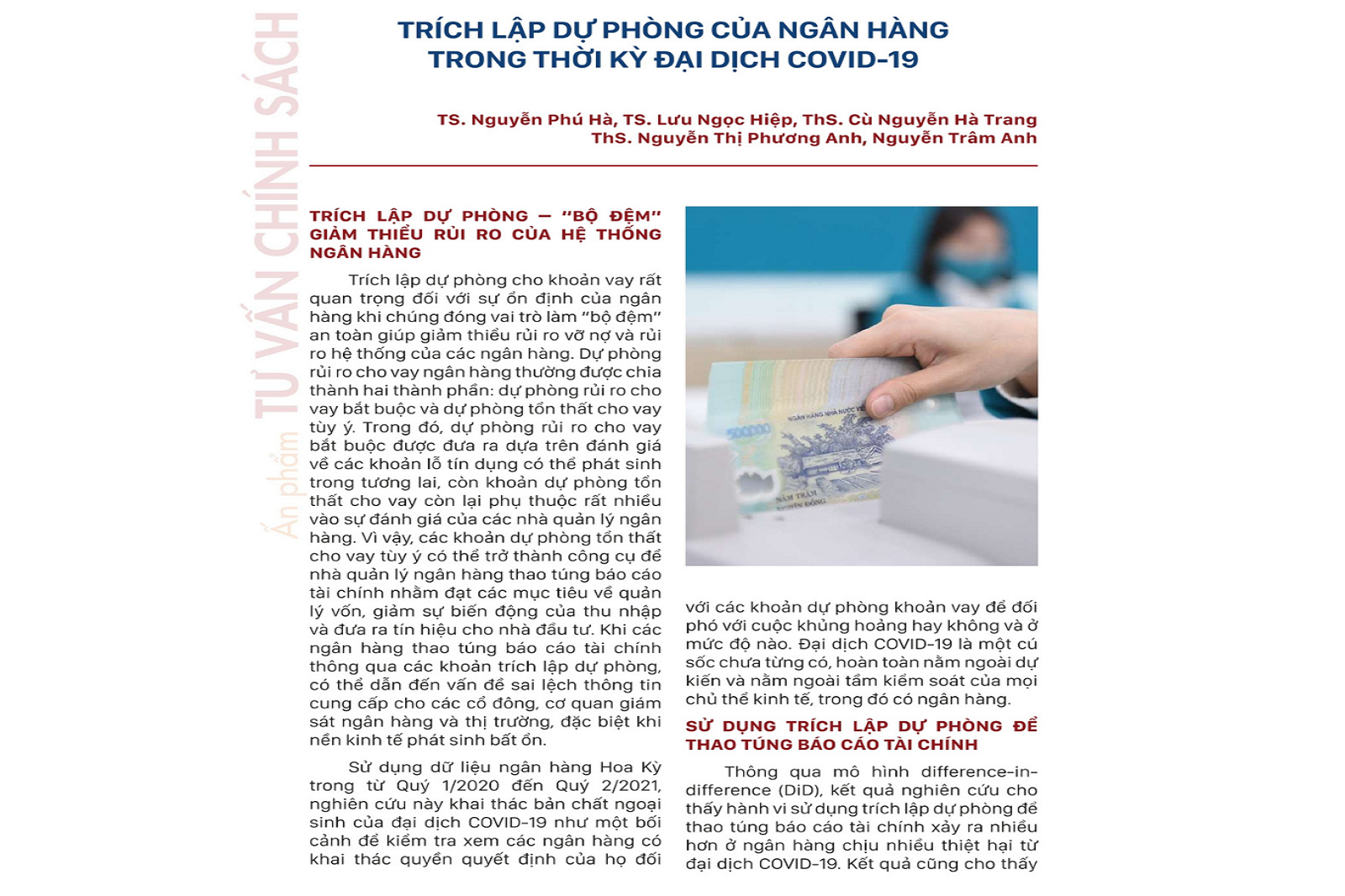
Provisioning by Banks During the COVID-19 Pandemic
Provisions for loans are crucial for the stability of banks as they serve as a safety "buffer" to mitigate the risks of defaults and systemic risks in ...
More details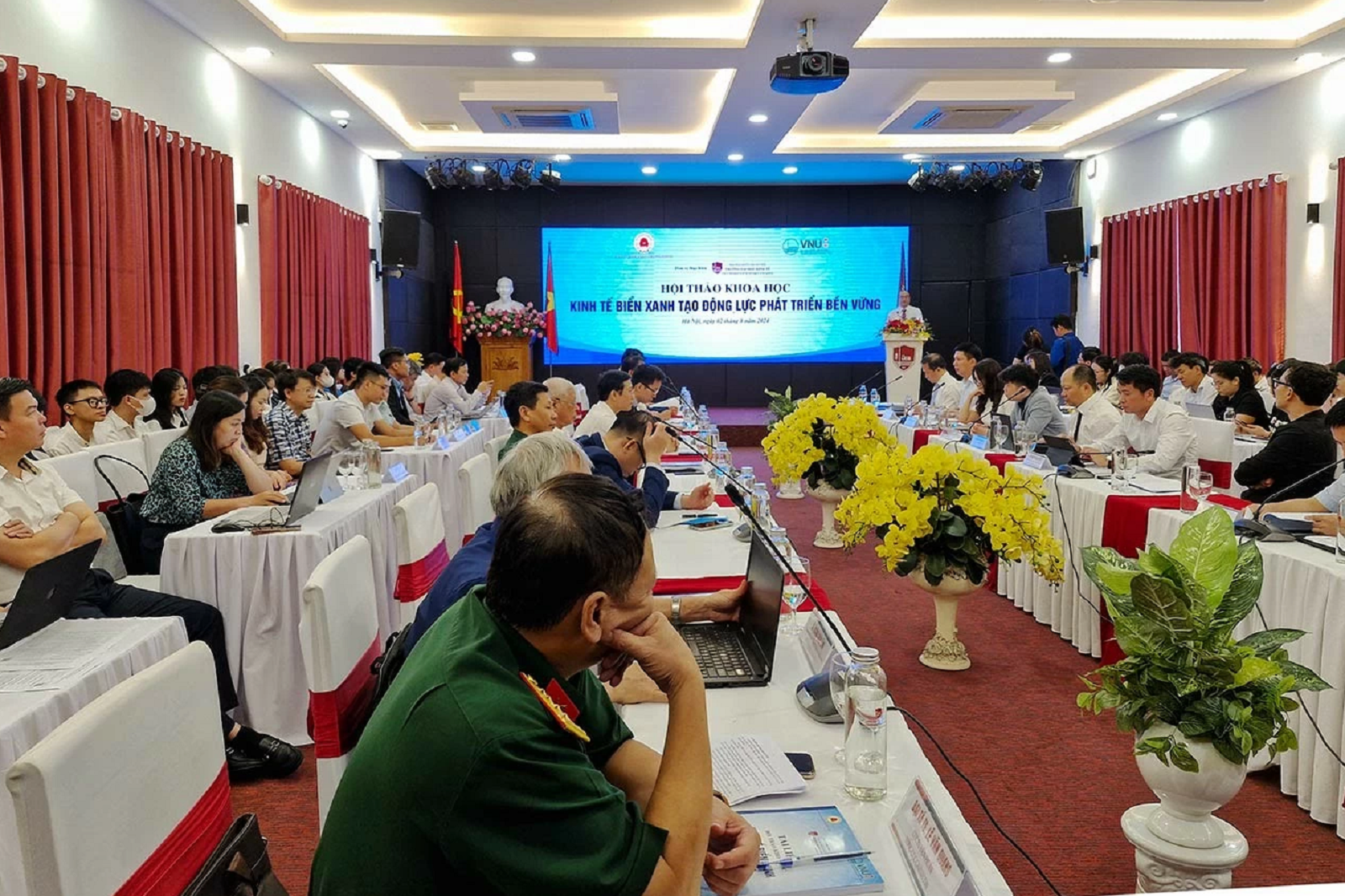
Blue Economy as a Driver for Sustainable Development
The green transition and the development of a blue economy are not only global trends but also consistent policies of the Party and the State of Vietnam, ...
More details
ASEAN Economic Cooperation Forum and Emerging Economies with the Russian Federation in the New Context: Issues and Prospects
Today, international economic cooperation between countries faces significant challenges. The trade volume between Russia and Vietnam, as well as between ...
More details
Regional economic integration and its impact on businesses
Research revealed how free trade and competition enhance the efficiency of businesses and economies. Import competition drives firms to increase productivity, ...
More details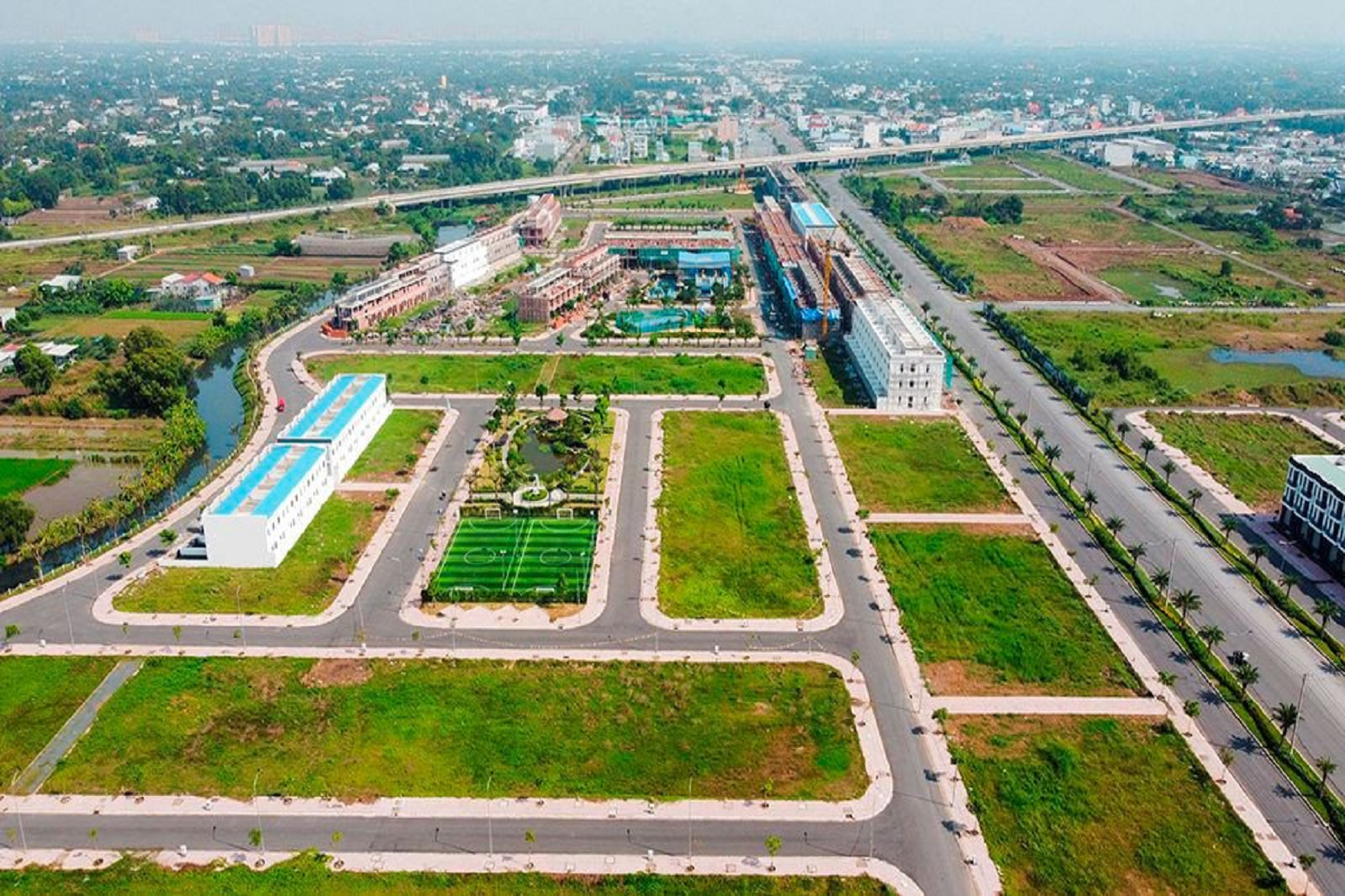
Completing land pricing policies in Vietnam
The Land Law 2013, Decree No. 44/2014/NĐ-CP on land prices, and Circular No. 36/2014/TT-BTNMT detailing land valuation methods, construction, adjustment ...
More details